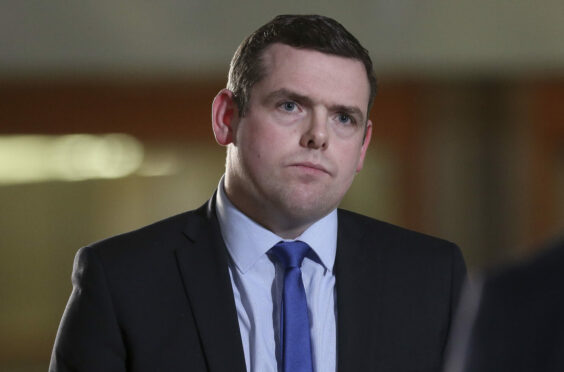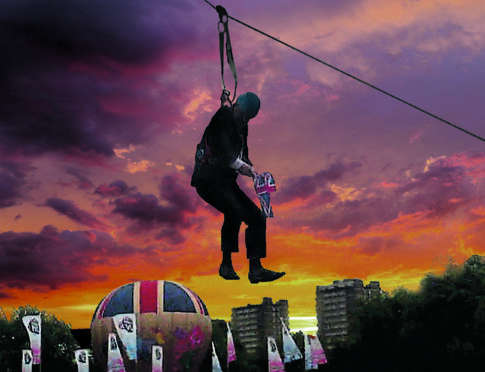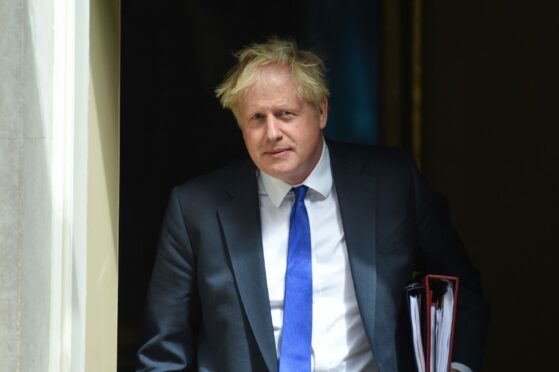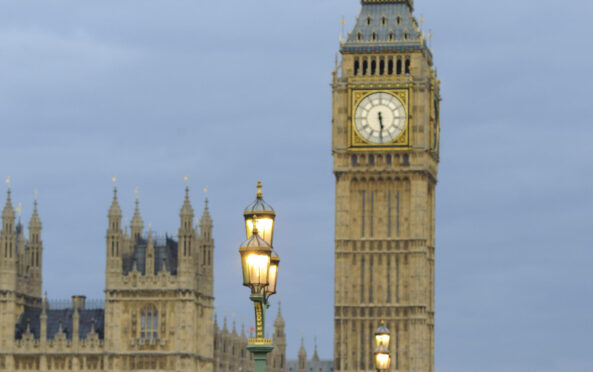
And, breathe. There will be no larger sigh of relief being expelled this weekend than by Douglas Ross, the leader of Scotland’s Tories. The resignation on Thursday of Boris Johnson removes a substantial problem which might have ended his own career.
He was facing the prospect of running a General Election campaign in Scotland, asking the people to elect a prime minister whom he had declared unfit for office. In all likelihood, he would have found himself unable to do so and may have had to fall on his own sword. Now, the sword is back in its sheath.
The Scottish Tory hierarchy will be dancing a merry jig for other reasons, too. The chasm between the Scottish party and the UK party, always there but widened immeasurably by the Ross-Johnson split, had created the most significant, active discussion about the Scottish party breaking away from its London-based counterpart for more than a decade.
The powers-that-be will now consider that discussion to be firmly back in its box. There will be a new leader, they will do a friendly photocall with Douglas Ross, they will say Nicola Sturgeon is a rotten egg and they will obtain a loud cheer from the membership when they say “not now, not ever” to a second independence referendum.
To a degree, they are correct. The debate was elevated again last week when Murdo Fraser led a delegation of MSPs on a visit to Munich, where the Christian Social Union sits independently in the Landtag (the Bavarian state Parliament) but in coalition with the Christian Democratic Union in the Bundestag (the German federal lower house of Parliament) in an arrangement Fraser proposed to mirror.
But, if that visit was anything to do with learning those lessons (which I suspect was heavily over-interpreted, in any case), it may as well now have been about learning lessons on how to make beer.Those who have long thought there needs to be an entirely separate party of the centre-right standing for election to the Scottish Parliament are indeed back in their box.
At least for now. But the concept will never die, because it is so obvious to almost everyone unencumbered by the emotional chains of putting party before country, that a new party provides the Scottish centre-right with its only opportunity for success.
Scotland has, as far as I can tell, the only national or provincial parliament which mathematically and politically cannot have a centre-right government. Holyrood is elected proportionally, which means the governing party needs either a coalition or cooperation partner. However, all four of the other parties in the Parliament have made clear that they will never put a Tory first minister in office. Ergo the Tories, the only party in the parliament never to have been in government, are consigned to permanent opposition.
I have seen countless changes of London leadership before. There will be a honeymoon period. The right lines will be scripted and the members will be dazzled. The General Election will be run on the single issue of rejecting a second independence referendum, and the Scottish Tories will likely hold their coveted second place.
But these new movies all have the same ending. They all end with the leader of Scotland’s Tories being, first and foremost, the northern line of defence for whatever is going on in London. They end with the leader of the Scottish Tories being unable to pursue their own agenda because they are consumed with defending the agenda of the leader of the UK party. They end with Scotland being the only country in the developed world in which the centre-right can never be in power.
And that is why the debate about a new party will never die.

Enjoy the convenience of having The Sunday Post delivered as a digital ePaper straight to your smartphone, tablet or computer.
Subscribe for only £5.49 a month and enjoy all the benefits of the printed paper as a digital replica.
Subscribe



